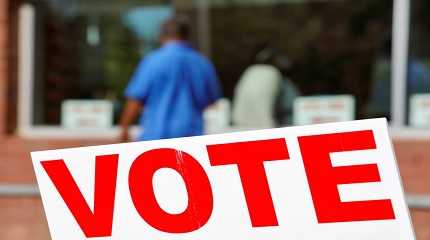
BRATISLAVA, Sept 30 (Reuters) - Slovaks were voting on Saturday in a parliamentary election closely fought between former leftist Prime Minister Robert Fico, who wants to end military aid for neighbouring Ukraine, and pro-Western liberals.
Final opinion polls showed the two parties neck and neck, with the winner expected to get the first chance to try to form a government to replace the caretaker administration running the country of 5.5 million since May.
Voting ends at 10 p.m. (2000 GMT). Exit polls are due to be released after polls close, and results will become available within several hours.
A government led by Fico would mean Slovakia joining Hungary in challenging the European Union's consensus on support for Ukraine, just as the bloc looks to keep unity in opposing Russia's invasion.
It would also bolster a group of eastern ex-Communist states with governments publicly hostile to liberalism. They also include Poland's ruling nationalist PiS party, which also faces an election next month, though it remains pro-Ukrainian.
A Progressive Slovakia (PS) government would stay the course on foreign policy, maintaining the country's strong backing for Ukraine and following a liberal line within the EU on issues such as majority voting to make the bloc more flexible, green policies and LGBTQ+ rights.
"It is now up to the voters," PS leader Michal Simecka, who is also a European Parliament vice-chairman, said after casting his vote in the capital, Bratislava.
"I hope that ... whatever government comes out of this election will continue to support Ukraine," he said.
Fico posted a video on Facebook of him casting his vote accompanied by his mother, saying he hoped "common sense" would triumph in the election "so they don't drag us into adventures, whether its migration or military".
SMALLER PARTIES
Neither Fico's SMER-SSD (Direction-Slovak Social Democracy) nor the PS is expected to win a majority, meaning the future government is likely to depend on results for over half a dozen smaller parties, from libertarians to far-right extremists.
The moderate-left Hlas (Voice) of Peter Pellegrini, an ex-SMER-SSD member and prime minister in 2018-2020, is seen coming third and may be the kingmaker. He has kept his options open but said this week his party was closer to Fico.
Fico has ridden on dissatisfaction with a bickering centre-right coalition whose government collapsed last year, triggering the election six months early, and concern about a rise in the number of migrants passing through Slovakia en route to Western Europe.
Fico's pro-Russian views reflect traditionally warm sentiments towards Moscow among many Slovaks, which have gathered strength on social media since the Ukraine war started.
"Fico benefited from all that anxiety brought by the (coronavirus) pandemic and the (Ukraine) war, by the anger spreading in Slovakia in the past three years, and fuelling that anger," said sociologist Michal Vasecka, from the Bratislava Policy Institute.
Fico has pledged to end military supplies to Ukraine and to strive for peace talks. This is a line close to that of Hungary's leader Viktor Orban but rejected by Ukraine and its allies, who say this would only encourage Russia.
He has also criticised sanctions on Russia and defended national veto powers in the EU.
But Fico was also a pragmatic leader in the past, which foreign diplomats and analysts say could tame his foreign policy turn.
They say Slovakia, with the euro zone's biggest budget deficit of nearly 7% of gross domestic product this year, badly needs EU modernisation and recovery funds, which would make the next government think twice before clashing with Brussels over issues such as rule of law.




